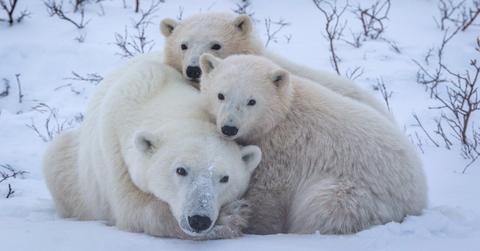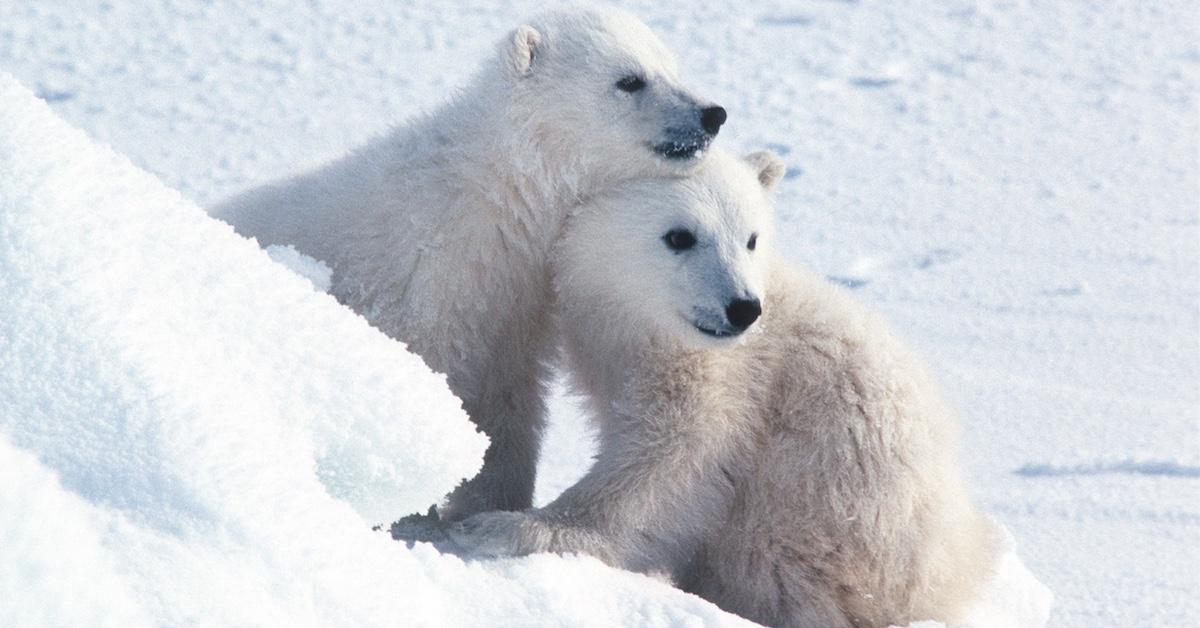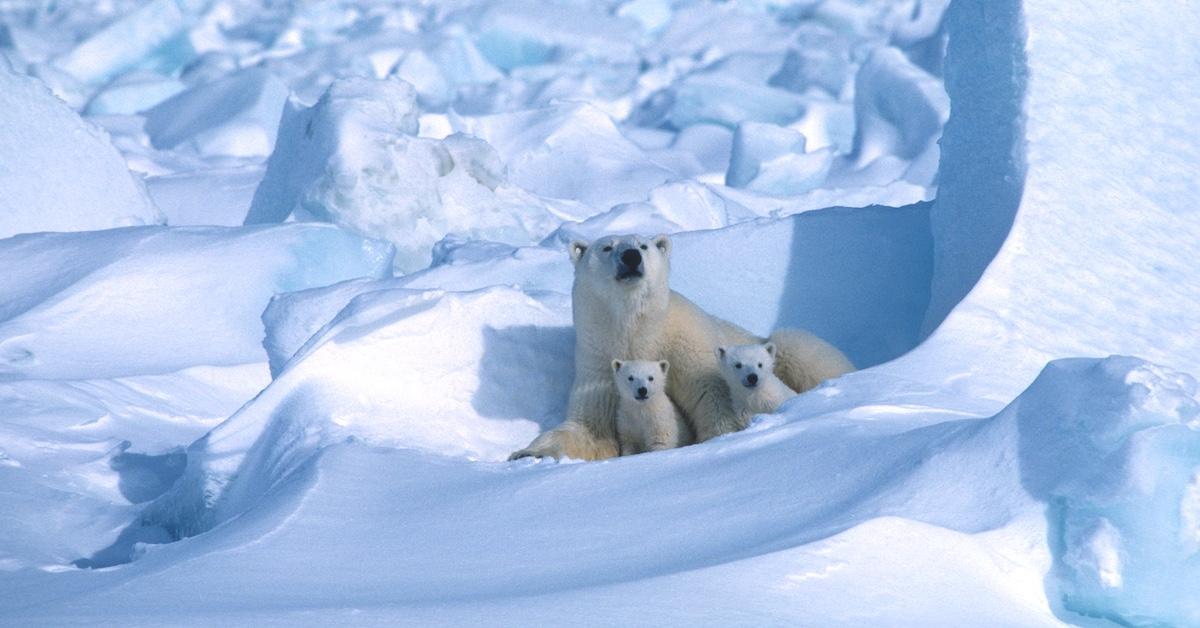It's International Polar Bear Day — How to Honor Mamas and Cubs, Who Are Threatened by Climate Change
Here's how you can take part in International Polar Bear Day.
Updated Feb. 27 2025, 9:29 a.m. ET

Every November, polar bear lovers celebrate Polar Bear Week, which commemorates the annual polar bear migration in Churchill, Manitoba, Canada.
But apparently, one week is not enough time to adequately honor these iconic marine mammals, because every February, we also celebrate International Polar Bear Day.
Keep reading for everything you need to know about International Polar Bear Day, and how you can get involved in the holiday in 2025.
When is International Polar Bear Day 2025?

This year, International Polar Bear Day falls on Thursday, Feb. 27, 2024, marking the 20th annual International Polar Bear Day.
The holiday is hosted by Polar Bears International (PBI) — the same polar bear conservation organization that is behind the annual Polar Bear Week.
International Polar Bear Day creates awareness for protecting polar bear cubs and moms.
PBI started International Polar Bear Day to mark the time of year when polar bear mothers and their cubs "are snug in their dens" across the Arctic, getting ready to emerge in the spring — and to call attention to the struggles that polar bear mamas and their babies face, in large part due to global warming and Arctic drilling.
As explained by PBI, this time in a polar bear cub's life — known as denning — is extremely vulnerable. When baby polar bears are born, they weight about a pound, they cannot see, they are toothless, and they have barely any fur to protect them from the harsh cold. In fact, less than half of polar bear cubs grow into adults, and polar bear populations are rapidly decreasing. The species is currently classified as Vulnerable.
So to protect cubs, their mothers bring them into a snow den for the winter, and care for their cubs for months on end, until they are strong enough to come out, which is typically shortly after International Polar Bear Day.
“The Arctic is warming rapidly, making it harder for polar bear mothers to raise their cubs,” Krista Wright, Executive Director of Polar Bears International, said in a statement shared with Green Matters ahead of the 2025 holiday. “This International Polar Bear Day, we invite the world to take action to protect these vulnerable families — polar bears are an indicator of the Arctic’s health, and the Arctic affects us all.”
In honor of International Polar Bear Day, every year, PBI's research team visits Svalbard, Norway to conduct maternal den studies. They install "non-invasive" cameras near the dens while the polar bears are hibernating, leaving the cameras to subtly capture the animals coming out of their snow dens come spring.

Polar Bears International unveiled a new study for International Polar Bear Day 2025.
In honor of International Polar Bear Day 2025, Polar Bears International co-funded a study about polar bear denning, published Feb. 26 in The Journal of Wildlife Management.
The study is the first to use both satellite tracking collars and cameras to answer questions about the denning habits of polar bears. Polar bear denning is difficult to track due to the remote nature of these dens, and since less than half of all polar bear cubs make it to adulthood, it's important to study these habits for conservation purposes.
Overall, the study's goal is to emphasize protecting cubs when they first emerge from their dens. Unfortunately, this is growing more difficult, due to human disturbances and industrial activities — namely, drilling for fossil fuels — in the Arctic.
“Polar bear mothers are having increasing difficulties reproducing due to climate-driven changes, and are likely to face further challenges with the expansion of the human footprint in the Arctic,” stated lead author Dr. Louise Archer, per PBI. “We’re excited to introduce new tools to monitor bears during this vulnerable time and to gain insight into their behavior across the Arctic, so that we can work to protect cubs and therefore the species.”
How can we celebrate International Polar Bear Day and protect polar bears?
In honor of International Polar Bear Day, PBI and Explore.org's Northern Lights Live Cam is now live on YouTube. The cam is streaming from the Churchill Northern Studies Center in Churchill, Manitoba, Canada, so make sure to tune in.
PBI also encourages people to spread the word about the ways climate change is hurting polar bears by posting on social media with the hashtags #PolarBearDay and #ProtectMomsAndCubs.
You can also watch PBI's short film Violet: A Polar Bear Story, available for free on YouTube.
To support these polar bear conservation efforts, you may consider donating to PBI or another animal conservation organization — and check out other ways to get involved on PBI's website.
This article, originally published on Feb. 24, 2023, has been updated to reflect International Polar Bear Day 2025.